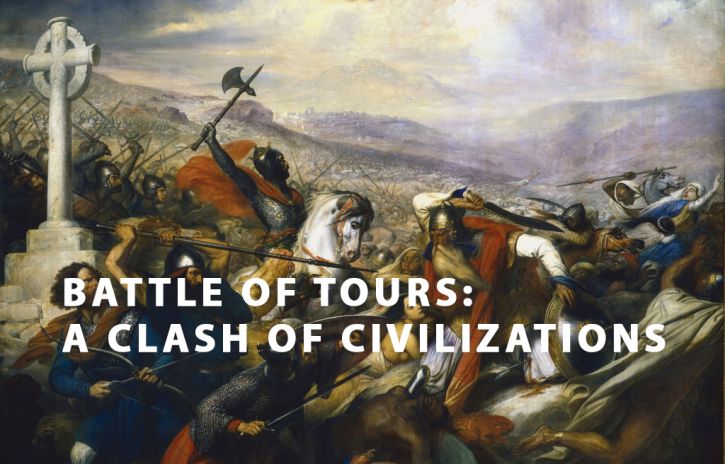
Battle of Tours: When Europe Halted the Islamic Advance in 732
The Battle of Tours in 732 CE marked a pivotal moment in European history, halting Islamic expansion into Western Europe. This decisive conflict between Frankish and Muslim forces shaped the continent's religious and cultural trajectory.
Charles Martel, leader of the Frankish forces, faced Abdul Rahman Al Ghafiqi's Muslim army near Poitiers, France. The Muslim forces, having already conquered Spain and Portugal, seemed unstoppable in their northward advance.

Battle of Tours medieval battle scene
The battle lasted seven days. Despite being outnumbered, Martel's troops capitalized on the Muslims' unpreparedness for cold weather and their vulnerability when protecting their plunder. The death of Abdul Rahman in combat led to a Muslim retreat, earning Charles the nickname "Martel" (the hammer) and cementing his legacy as Europe's defender.
Today, Europe faces different challenges regarding Islamic influence. Muslim immigration has significantly increased, with millions settling in European cities. Former Libyan leader Muammar Gaddafi notably predicted in 2006 that Europe would become "a Muslim continent within a few decades" through demographic changes rather than military conquest.
This cultural shift has sparked political tensions, leading to:
- The rise of far-right anti-immigration groups
- Renewed focus on European religious identity
- Debates about maintaining Christian cultural heritage
Biblical prophecies suggest the Catholic Church will play a crucial role in uniting 10 European nations under a single leader (Revelation 17:1-13). As Islamic presence grows in Europe, questions of religious and cultural identity continue to shape contemporary European politics and society.
The contrast between the 8th-century military confrontation and today's demographic and cultural changes highlights the evolving nature of civilizational challenges in European history. While the Battle of Tours represented a military turning point, modern Europe grapples with questions of integration, identity, and cultural preservation through peaceful means.
Related Articles

Terror Strikes Paris: 12 Dead in Charlie Hebdo Attack

